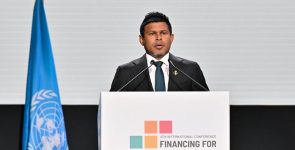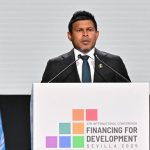The Maldivian government’s spending on major development projects has plummeted, with current capital expenditure at MVR 3.5 billion, a stark 50% reduction from MVR 6.5 billion in the same period last year. This significant drop is attributed to reduced investments in road and airport developments, which saw expenditures fall to MVR 300 million from MVR 2 billion last year.
Capital Expenditure and Budget Utilisation
Despite the ambitious allocation of MVR 13 billion for development projects this year, only 26% of this budget has been utilised so far. This underutilisation highlights the government’s cautious approach towards capital expenditures amidst broader economic considerations.
Reductions and Reallocations
In response to these economic shifts, the government is set to implement further measures to curtail state spending. Overall expenditure this year has decreased by MVR 2.4 billion compared to the previous year. This reduction is primarily seen in the capital projects, while operating expenses have surged by MVR 700 million. A notable increase in salaries, which have risen by MVR 600 million from last year, constitutes the largest portion of these operating expenses.
Salary Expenditures and Budgetary Pressures
So far, MVR 5.5 billion has been spent on employee salaries, reflecting the government’s commitment to maintaining wage stability amidst economic adjustments. The total state budget for the year stands at MVR 49.8 billion, with MVR 18.8 billion already spent.
Looking Ahead
The reduction in capital expenditure underscores the government’s strategic pivot to balance economic sustainability with developmental goals. As the fiscal year progresses, the focus will likely remain on efficient budget utilisation and targeted spending, ensuring that key sectors continue to receive necessary funding while overall expenditures are kept in check. The forthcoming measures to reduce state spending will be critical in maintaining this balance, safeguarding economic stability, and promoting sustainable growth.
By reallocating resources and prioritising essential expenditures, the government aims to navigate through the economic challenges, ensuring that the reduction in spending does not hinder long-term developmental objectives. The forthcoming months will be crucial in assessing the effectiveness of these strategies and their impact on the nation’s economic health.



















